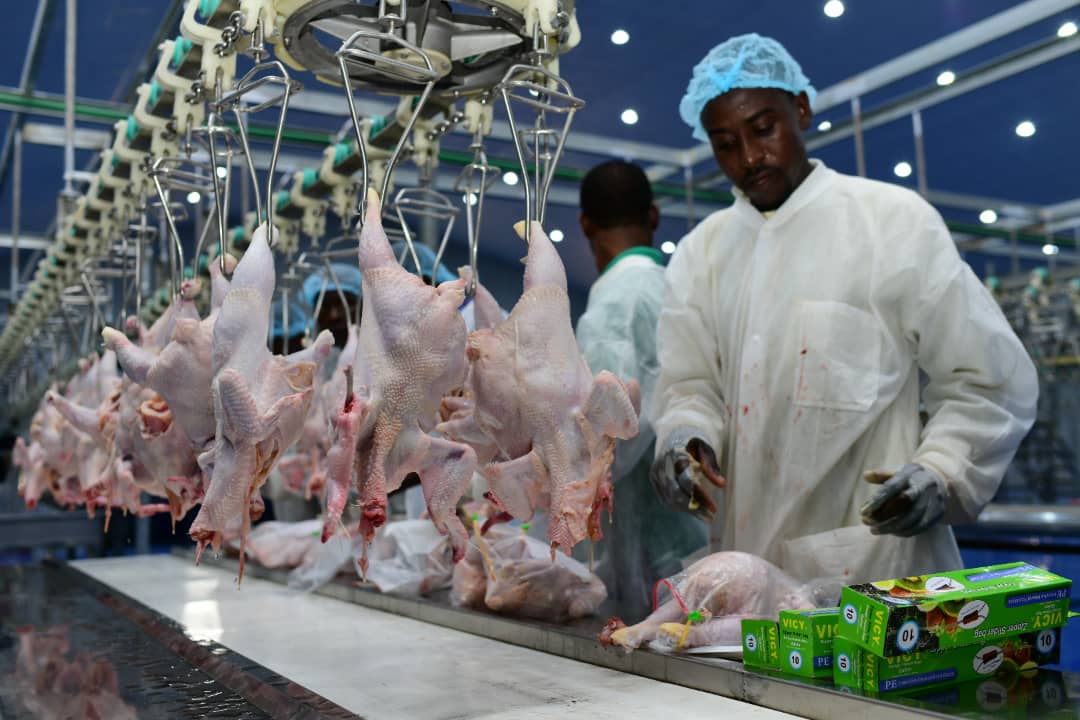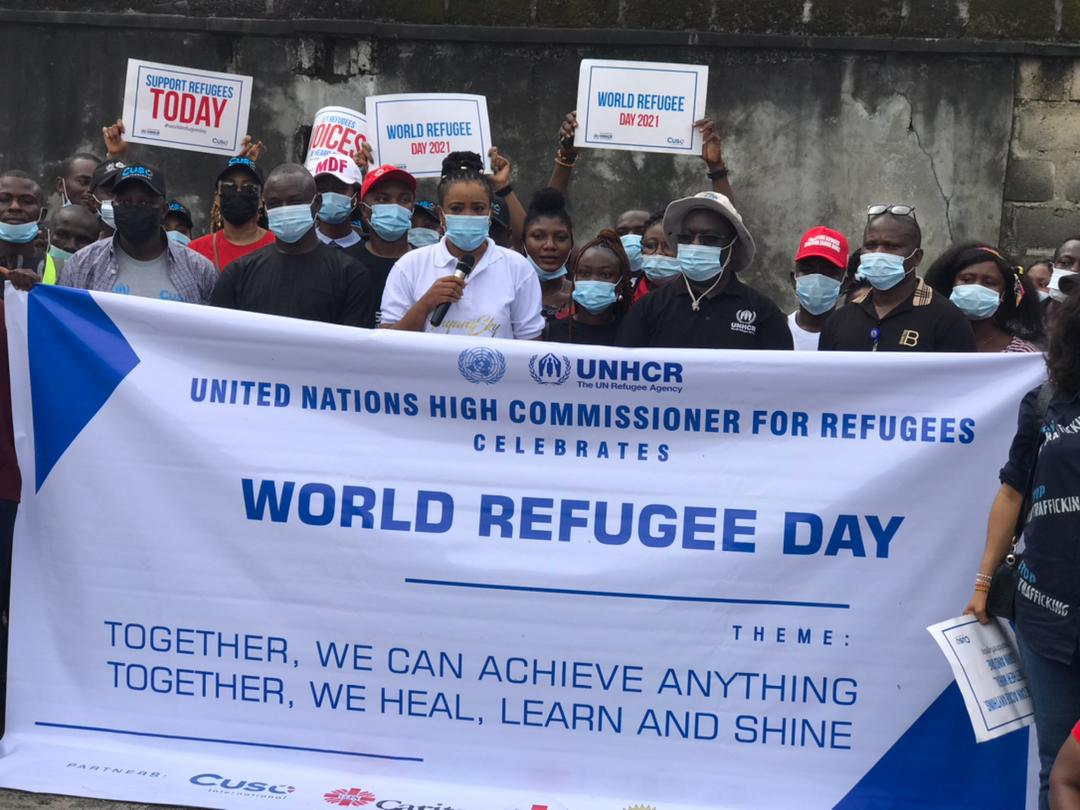Over the years, concerned indigenes of Ekureku in Abi Local Government Area, people of the Semi-Bantu stock of Cross River State who constitute a variant of the Ekoi tribe of the South Eastern belt of the Niger Delta, have been lamenting with heavy hearts the state of their largely agrarian community. They have been trying to articulate possible solutions to the pains, hunger, thirst, death, deprivation, suppression, oppression and depression that dot their landscape in spite of the abundant opportunities and privileges which abound in Nigeria. With an intimidating numerical strength — more than half of the entire population of Abi Local Government Area, the Ekureku are supposed to call the shots in all electoral matters in Abi and to some extent, Cross River State.
In practical terms, Ekureku happens to be one of the densely populated communities in Cross River State easily grouped among large communities like Boki, Bekwara, and Ugep. Ekureku Ezegigbala is made up of nine (9) densely populated villages: Akarefor, Anong, Agbara, Ngarabe, Ekureku-be, Akpoha, Egboronyi, Eminekpon, and Etigevem. Unfortunately, due to complete absence of representation in government, the life of the average Ekureku person is that of diminished and marginalised existence in political, economic and social spheres. Demographically, Ekureku is supposed to be split into six administrative wards. But because of incipient political marginalization Ekureku has only two administrative wards and as such cannot produce more than two councillors despite their large population.
Ours is a classic case of a blessed people who have ironically chosen to remain in perpetual socio-political and economic penury due to the absence of a collective vision on the part of our educated elite who take delight in petty rivalry, internal squabbles and the ‘pull-him-down’ syndrome instead of uniting their people in order to speak with one voice. In the entire Cross River State, it is the Ekureku people who are basically rice farmers, who cultivate and sell rice in commercial quantity. Of course, there are other communities in the state that are rice farmers. These include Bansala-Ogoja, Yala, Mkpani, Ugep, etcetera. But Ekureku has the highest number of rice farmers in the state. And because they lack the processing and storage facilities, the Igbo (Ibo) traders who process rice in Abakaliki, Ebonyi State buy the rice measured in jute bags, take it to their state where it is processed, packaged and stored as “Abakaliki Rice” in Nigeria. Often, the Igbo traders buy the raw rice from Ekureku farmers at very cheap rates. These Igbo traders in laying claims to the sweat of Ekureku farmers, have been attracting loans from the Federal Government and the World Bank running into millions of United States Dollars while the actual producers remain hewers of wood and drawers of water.
Indeed, the condition of the Ekureku people is getting worse because they have nobody to intervene for them. This collective failure of the Ekureku people to produce visionary leaders who will speak for the people at the state and national political arenas has spelt doom for the people. Politicians often come from other communities to explore their numerical strength, exploit their votes with mere tokens of gift in form of money, rice and salt and then leave them panting like fish on a dry sandy beach till another election season. Repeatedly dissapointed by extravagant promises and unfulfilled expectations, the people who have become cynical about government and the public morality of its agencies and agents, have now been yearning for relief. Despite their huge agricultural potentials, the Ekureku people are mere epitome of the proverbial saying that “in the midst of water soap enters into the eyes of the ignorant”. Agriculture which is the mainstay of the people’s economic life has drifted into oblivion because of lack of financial support to go beyond subsistence endeavours.
Almost 60 years into self-rule in Nigeria, the people of Ekureku are yet to enjoy the benefit of modern development. Whereas in the pre-independence politics that heralded the First Republic, Itigidi, a small and landlocked sister community to Ekureku produced a political stallion in the person of the late Dr. S. E. Imoke, who represented the old Abakaliki Province (made up of the entire present Ebonyi State and part of the present Cross River State) in the Eastern Nigeria House of Assembly, no Ekureku son was in politics. Dr. Imoke was a contemporary of the late Dr. Akanu Ibiam who was Governor of the Eastern Region. Dr. Imoke it was who attracted a lot of developments to the area he represented during his time. These included but not limited to the construction of the Enugu — Abakaliki Road, the Abakaliki — Afikpo Road, Abaomege — Itigidi Road, the Eja Memorial Joint Hospital, Itigidi, and the Agbo Customary Court in Agbara — Ekureku, amongst others.
During that time, the only profession that was attractive to Ekureku people was teaching in primary schools. Also, a few of their young men were recruited into the Nigeria police force. Up until the 1980s when Ekureku started producing graduates of institutions of higher learning in large numbers, the community was yet to number any of her sons and daughters in the Nigerian civil service aside from the late Dr. Fidelis Agbong Egbe, a medical doctor who returned to Nigeria from India in the mid 1970s; Dr. Michael Idaka (Dixy), one of the first Ekureku indigenes to have risen to managerial positions in the country and Prof. Matthew E. Eja. While Dr. Michael Idaka was at the defunct National Provident Fund (NPF), Prof. Eja, was the first Sole Administrator of Abi Local Government Area during the short-lived administration of Chief Dr. Clement Ebri as governor of Cross River State. He was the university don whose effort as Sole Administrator eradicated guinea worm from Abi Local Government Area when he sank boreholes in all nooks and crannies of the local government thereby providing potable water for the people. Unfortunately, this first generation of Ekureku graduates did not unite politically due largely to internal wrangling among them.
The second generation of Ekureku graduates also followed their footsteps. In spite of the large number of Ekureku sons and daughters who graduate yearly from institutions of higher learning, they lack the courage to go into politics. This largely accounts for our present trajectory. Yet, the community is now blessed with many professors, associate professors and professionals in various fields of human endeavours. The community has produced top bankers, chartered accountants, brilliant economists, top administrators, mathematicians, lawyers, journalists, etcetera. Despite their vast land mass, there is no state or federal presence in Ekureku, not even a tertiary institution. Successive and present administrations in Cross River State have failed to appoint Ekureku indigenes into government positions aside from the administration of former Governor Donald Duke who appointed their son Dr. Alex as Deputy Chief of Staff and Governor Liyel Imoke who promoted him to Chief of Staff.
Today, all the colonial and early post-colonial legacies in Agboland of which Ekureku is a part, have atrophied even as the Itigidi — Abaomege Road, which was rehabilitated some years ago during the administration of Chief Dr. Olusegun Obasanjo, has turned into embarrassing deathtrap due to lack of maintenance. As a result of the absence of sincere, honest and proper representation in the scheme of things in Cross River State and Nigeria at large, the people of Ekureku are always left with the wrong end of the stick. Consequently, a fundamental element of distrust has embedded itself in the psyche of the people like a cankerworm. Since the dawn of the civilian democratic dispensation in May 1999, we cannot collectively gather enough momentum through pre-emptive initiatives, to appropriate for ourselves the requisite benefits of the new era especially at the Federal Level. It would be recalled that in 2009 there was a devastating windstorm that ravaged Ekureku like a tsunami which rendered thousands of residents homeless as rooftops and even some buildings were uprooted. Many farms were also destroyed.
At the same time, a similar holocaust visited Esan East in Edo State. Whereas Hon. Barr. Patrick Ikhariale, the then representative of Esan East Federal Constituency in the Lower Chamber of the National Assembly, tabled the emergency before the House as a matter of urgent national importance, the fellow representing Abi/Yarkurr Federal Constituency in the House of Representatives was in limbo. He did practically nothing about the Ekureku situation. Relief materials running into hundreds of millions of naira were mobilsed to Esan East in Edo State by the Federal Government while the people of Ekureku only got little relief materials from the Cross River State Government. Dr. Alex Egbona who was then Chief of Staff to the Governor of the State was instrumental to the release of relief materials from the state government. He also made a personal donation of N5million to victims of the windstorm disaster. Ekureku people did not get any relief material from the Federal Government because the man who represented Abi/Yakurr Federal Constituency then did not see Ekureku as part of his constituents.
It is therefore imperative for Ekureku people to come together and take stock of where they are coming from, where they are in the current political dispensation and where they and their children will be in future. The suffering people of Ekureku must realise that things have to change for the better. They must stop playing the ostrich – burying their heads in the sand. They must abandon the “follow-follow” mentality which yields only marginal benefits; and stand up for their son Hon. Dr. Alex Egbona for things to change for the better. If you cannot run for an elective position, why work against your brother who has the courage and the wherewithal to contest elections? Coming together as one would ensure us the position of advantage to put meanings into the lives of our children and generations yet unborn through economic opportunities, employment, educational advancement, social infrastructure, healthcare, political identity and a sense of belonging.
Let us stand firmly and urge our people to shun petty gifts from those who continue to see us as fools that must be used and dumped. Let us eschew bitterness and rancour and vote for our son come next Saturday January 25, 2020. A man who cannot stand for something can fall for anything. If we fall for anything we will bequeath nothing to our future generations and we would continue in penury, savagery and slavery. But if we stand firmly as a collective, irrespective of our petty differences, our relevance can no longer be negotiated. A vote for Alex Egbona is a vote for the collective destiny of Ekureku people. A word is enough for the wise!




